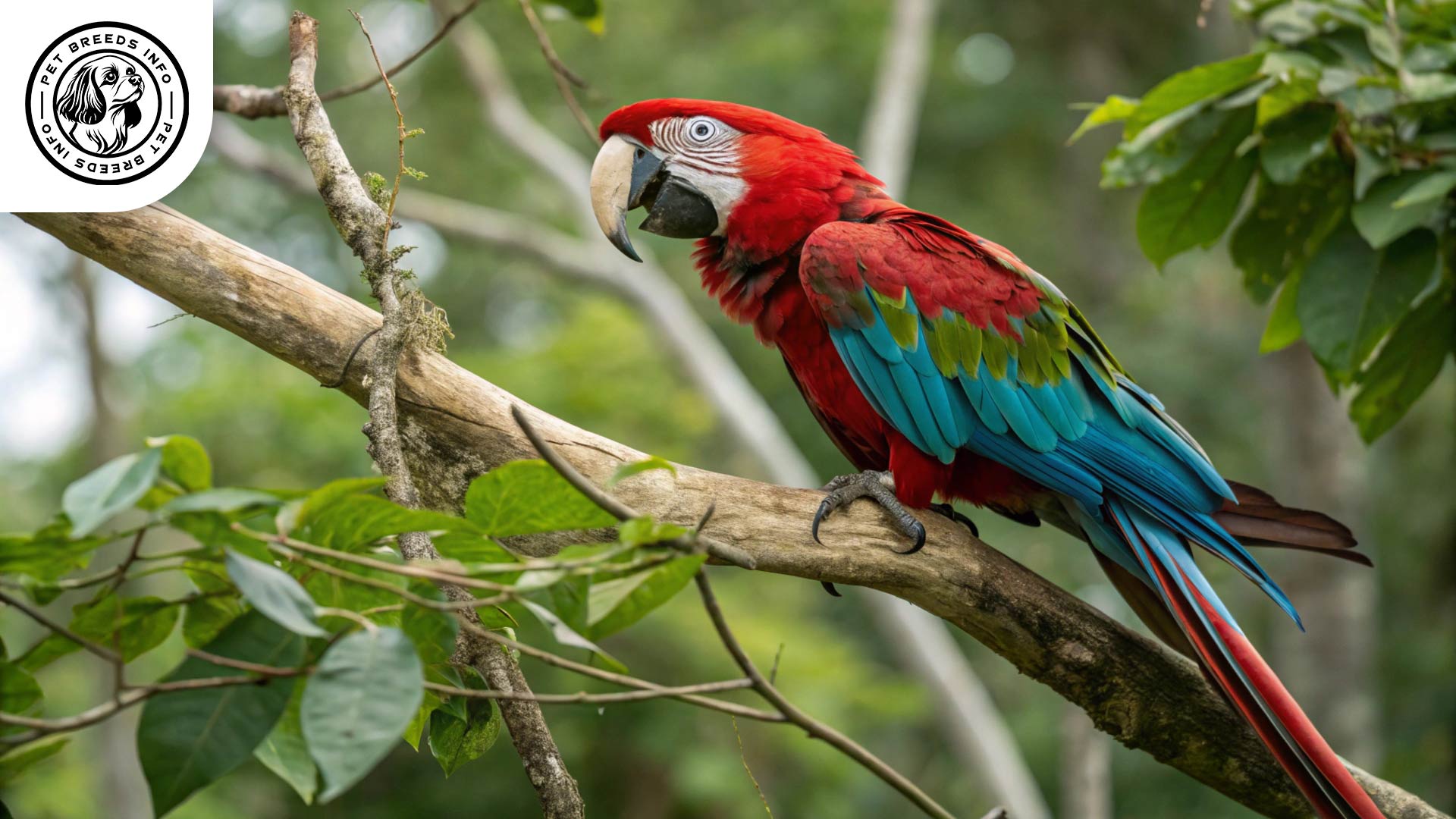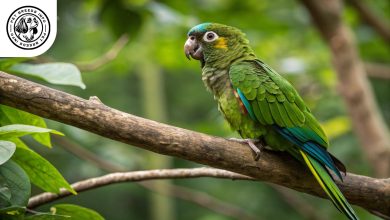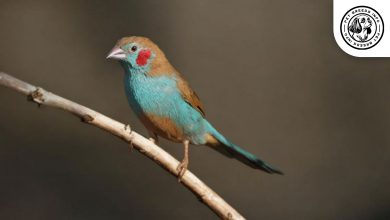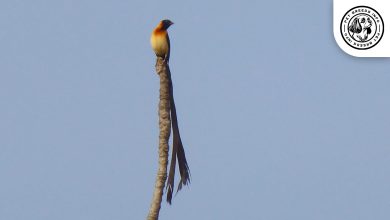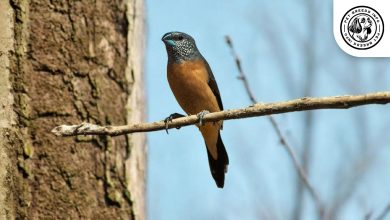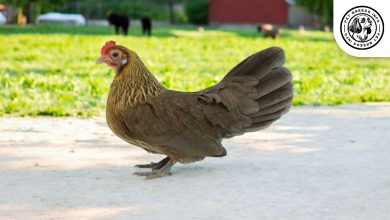Green-winged Macaw Bird: Personality, Lifespan, Food & Care
General Introduction of the Breed
The Green-winged Macaw (Ara chloropterus) is a stunning and intelligent parrot species known for its vibrant colors and playful personality. Also referred to as the Red-and-green Macaw, this breed originates from the forests of South America, including countries such as Brazil, Paraguay, and Argentina.
Historically, Green-winged Macaws have been admired for their intelligence and ability to interact with humans. They have long been kept as companion birds and are a popular species in aviaries and zoos worldwide.
Table of Contents
| Common Name | Green-winged Macaw, Red-and-green Macaw |
| Scientific Name | Ara chloropterus |
| Origin | South America (Brazil, Paraguay, Argentina) |
| Size | 90 to 95 cm (35 to 37 inches), 1.1 to 1.7 kg (2.4 to 3.7 lbs) |
| Lifespan | 50 to 80 years |
| Talking Ability | Can mimic human speech to some extent |
| Colors | Primarily red with green wings and tail (transitioning to blue at wing tips) |
| Noise Level | Can be loud |
| Social Behavior | Social birds, form strong bonds with owners, generally get along well |
Physical Characteristics
Green-winged Macaws are one of the largest macaw species, reaching lengths of 90 to 95 cm (35 to 37 inches). They typically weigh between 1.1 to 1.7 kg (2.4 to 3.7 lbs).
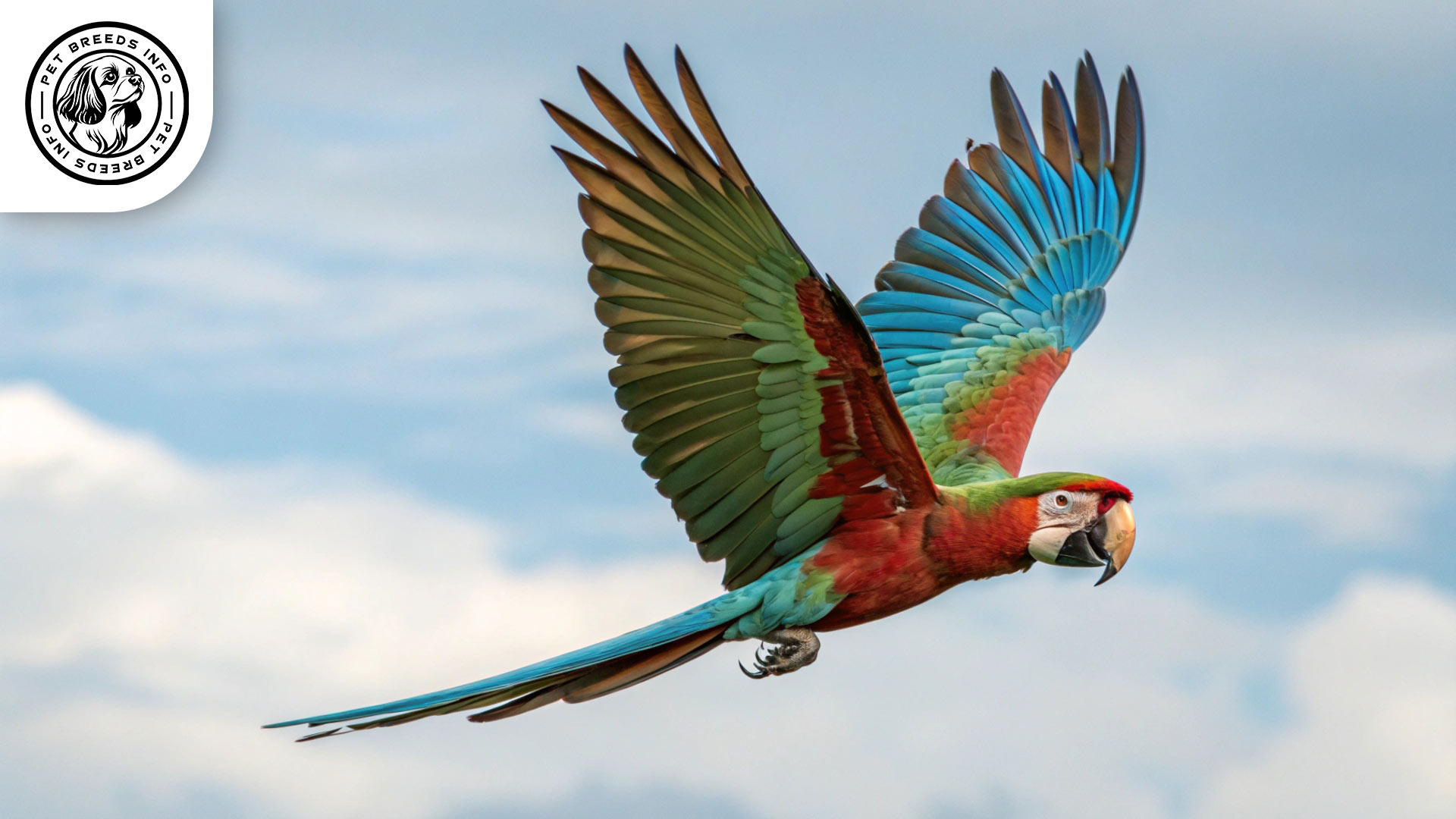
Their plumage is primarily red, with striking green feathers covering their wings and tail. The wing feathers transition from green to blue towards the tips. They have distinct white, featherless patches around their eyes with fine red lines.
Their eyes are typically light yellow to white, and their large, curved beak is powerful, with a black lower mandible and a lighter ivory-colored upper mandible.
Read More: Green-rumped Parrotlet
Personality and Temperament
Green-winged Macaws are highly intelligent birds that can learn tricks and even mimic human speech to some extent. They are known for their affectionate nature and tend to form strong bonds with their owners.
This breed is energetic and requires regular interaction and mental stimulation. They enjoy playing with toys, solving puzzles, and exploring their surroundings.
They are social birds and generally get along well with humans, children, and even other compatible pets. However, they can be loud at times and require proper training to minimize excessive vocalization.
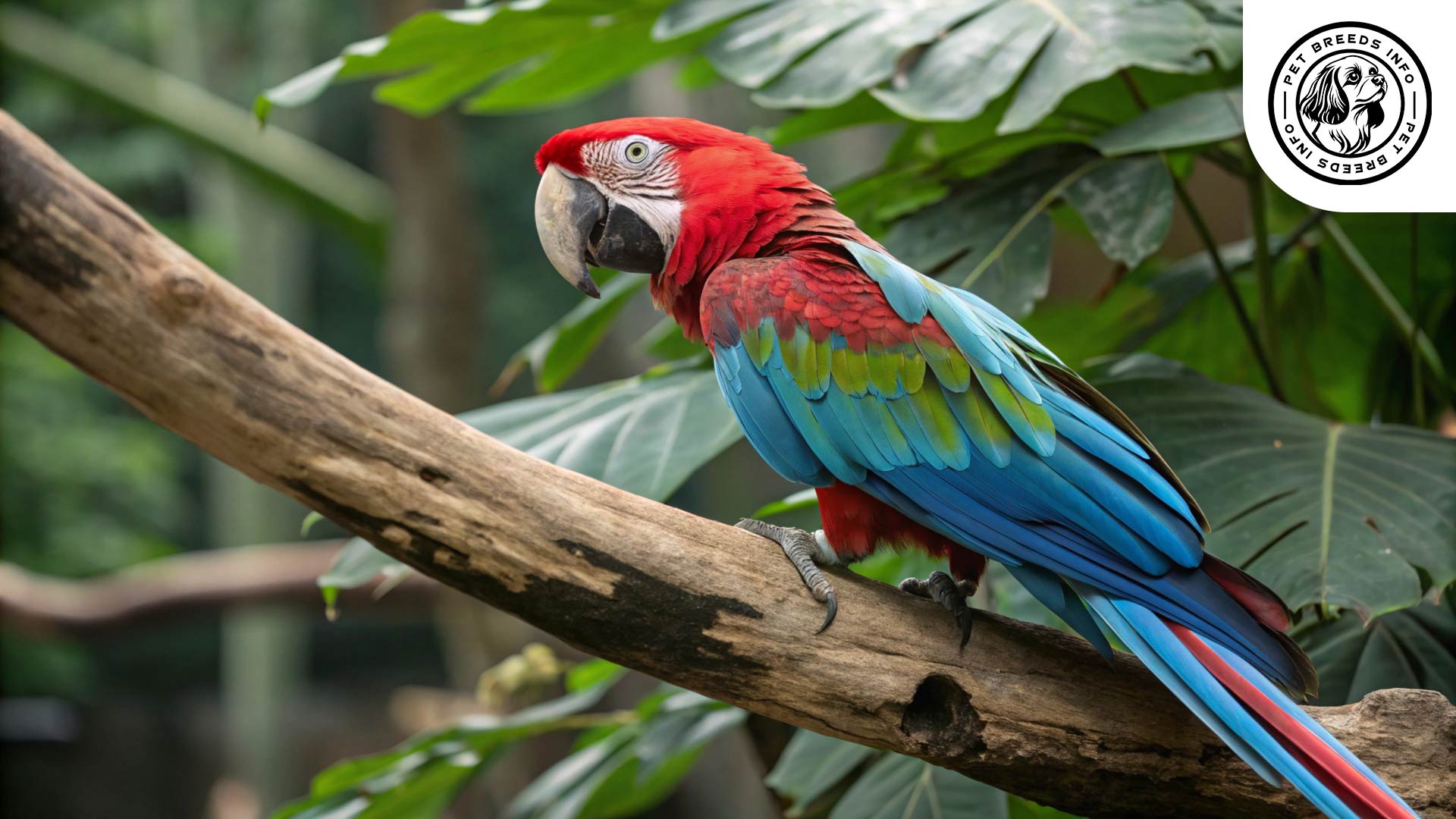
Care and Maintenance Requirements
Green-winged Macaws need daily physical activity and mental stimulation. Owners should provide a spacious cage and allow them out for several hours each day.
They are not well-suited for small apartments due to their large size and loud calls. Ideally, they should have access to an aviary or a large bird-safe space.
Grooming includes regular nail trims, beak maintenance, and bathing either by misting or providing a shallow water dish. Their feathers remain healthy through natural preening.
They are sensitive to extreme temperatures and should be kept in an environment with a stable, comfortable climate.
Diet and Nutrition
A well-balanced diet for a Green-winged Macaw includes high-quality pellets, fresh fruits, vegetables, and seeds. Nuts can be given as occasional treats.
Avoid feeding them chocolate, avocado, caffeine, alcohol, salty foods, and sugary treats, as these can be toxic.
They should be fed twice daily, with portion sizes appropriate to their body size and activity level.
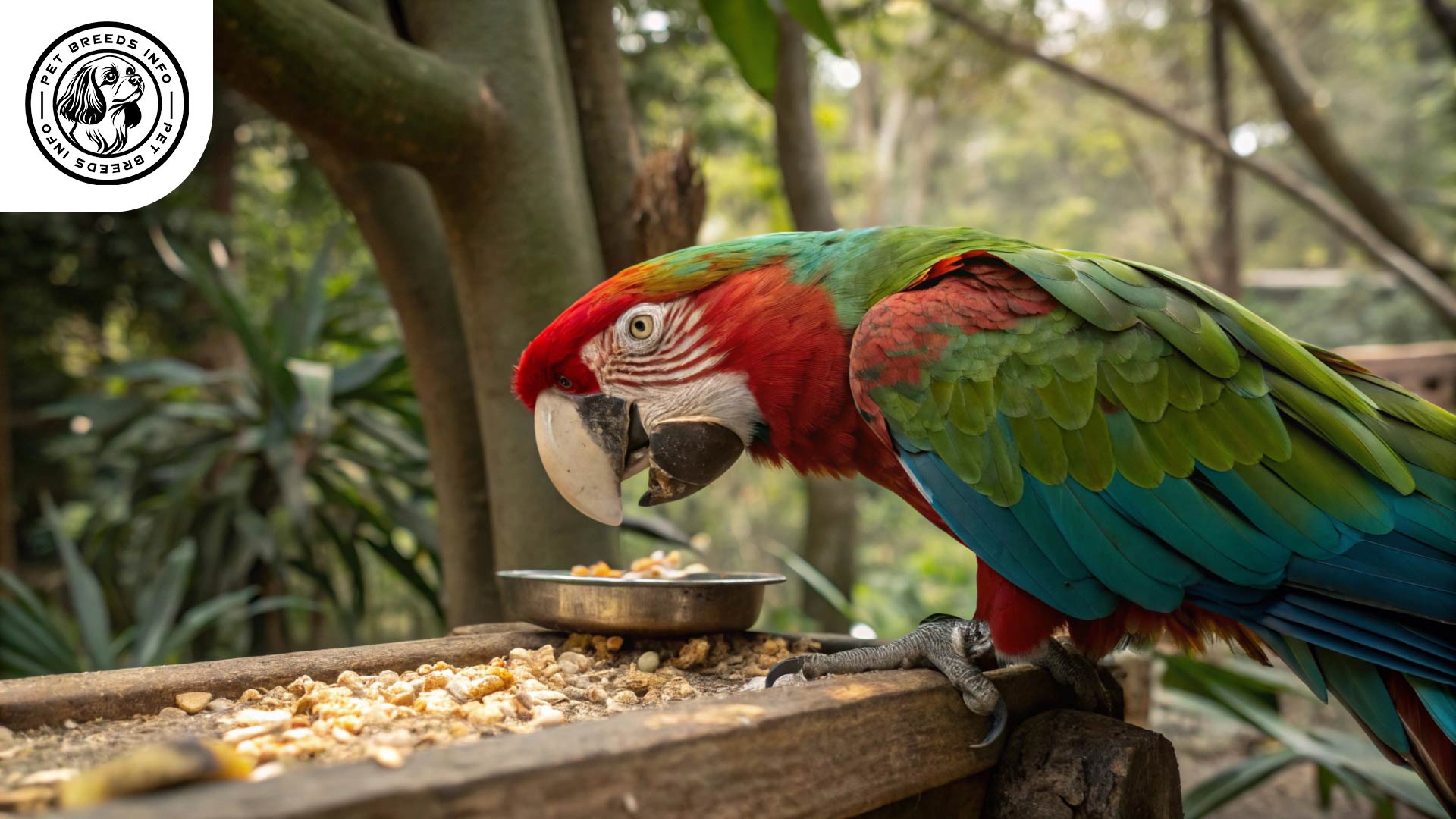
Health and Common Medical Issues
Green-winged Macaws are prone to specific health conditions such as feather plucking, beak malformations, respiratory infections, and psittacine beak and feather disease (PBFD).
They generally have a long lifespan of 50 to 80 years when properly cared for.
Regular veterinary check-ups, vaccinations, and parasite control are essential to maintaining their health.
Read More: Green-cheeked Conure
Training and Behavior Management
This breed is relatively easy to train due to its intelligence. Positive reinforcement methods such as treats and verbal praise work best.
Early training and socialization help them develop good manners and prevent undesirable behaviors like excessive screaming or biting.
Consistency is key when teaching them behaviors such as step-up, recall, and basic commands.
Interaction with Other Animals and Humans
Green-winged Macaws are generally gentle and affectionate birds that bond closely with their owners. They require regular social interaction to avoid loneliness.
They can be good companions for children who understand how to handle birds properly.
They may get along with other birds or pets, but introductions should always be supervised.
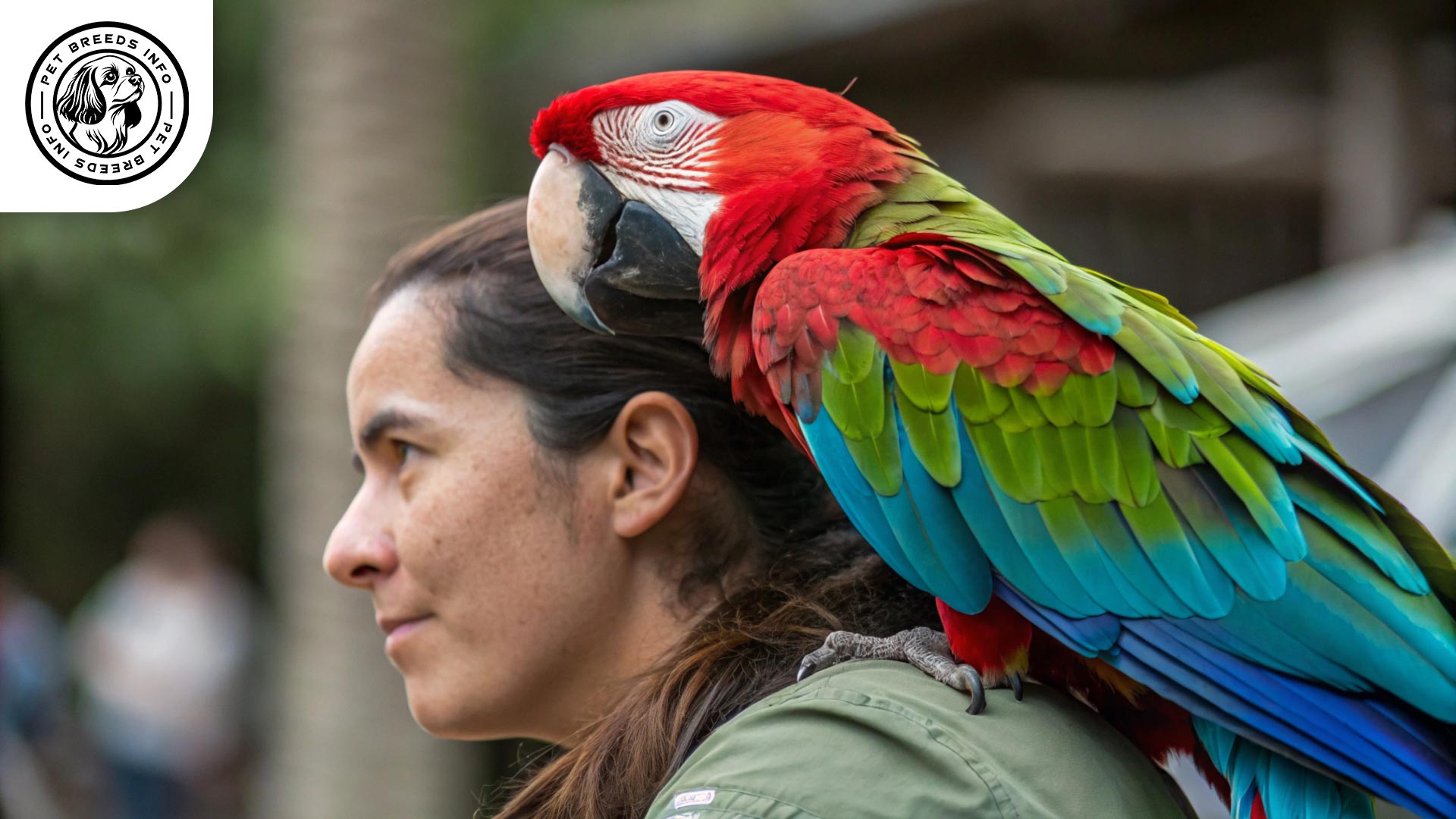
Price and Availability
The price of a Green-winged Macaw can range from $2,000 to $4,000 depending on factors such as age, breeder reputation, and health condition.
It is important to buy from a reputable breeder or adopt from rescue organizations to ensure ethical breeding practices and the bird’s well-being.
Potential owners should consider the long-term commitment required for such a long-lived bird before purchasing.
Conclusion and Final Thoughts
The Green-winged Macaw is a delightful and highly intelligent parrot that thrives in environments where it receives plenty of attention and love. However, they are best suited for experienced bird owners due to their care needs and long lifespan.
Owners should be prepared for daily interaction, a spacious living area, and a commitment to training and maintaining their well-being.
Before adopting a Green-winged Macaw, ensure you have the time, resources, and knowledge necessary to provide a fulfilling life for this incredible bird.
Read More: Jenday Conure Bird
FAQ
How big do Green-winged Macaws get?
They are one of the largest macaw species, reaching 90 to 95 cm in length.
Are Green-winged Macaws good talkers?
Yes, they are intelligent and can learn to mimic human speech to some extent.
What is the typical lifespan of a Green-winged Macaw?
With proper care, they can live for 50 to 80 years.
Do Green-winged Macaws make a lot of noise?
Yes, they can be loud at times and require proper training.
Are Green-winged Macaws social birds?
Yes, they are affectionate and form strong bonds with their owners, requiring regular interaction.
